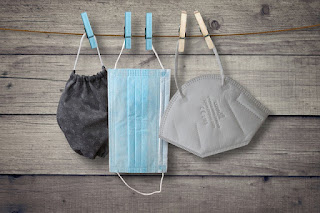When the rain started, it felt like just another monsoon. Inconvenient, but not particularly worrying.
But this year, the water just kept on coming. And coming. And coming.
Cars were swamped. First floors were inundated. Some second floors went under too. Old folks died of cold and exposure. Pets were killed, some horrifically trapped by cages or chains and drowned slowly.
In the aftermath, a whirlwind of emotions. Why did this happen to me? And It is my fault. I should have known this would happen. Maybe you are angry too, especially if you flood again a day later.
While your rational self should point out that you don't have fortune telling powers, the emotions can be overwhelming. So here are some thoughts about what's going on.
Just World Guilt As sensible adults, we know that the world is a dangerous and random place. Good people are stricken by disease, and evil dictators live long, happy lives. It's not fair and we have to suck it up.
However, a part of us continues to believe that good things happen to good people, and that we reap what we sow. Mainly, it comes down to lessons from our elders when we're little.
The idea that we control our future starts really early. Remember hearing, "If you study hard, you'll pass your exams"? When we're kids that advice seems true because pre-uni school is mostly a memory game. If you put in the time and learn to parrot, you get an A.
The idea that we control good stuff is constantly reinforced. "If you get enough sleep, you will have energy in the morning" and "If you practice at tennis/football/swimming, you'll get to be really good."
Subconsciously, this leads to the idea of a Just World. In this Just World, good things happen to good and careful people. Which doesn't seem a big deal, except that it has a nasty sting in the tail: if bad things happen, is it because you are a bad or careless person?
Logic says no, but the heart isn't always reasonable.
Just World thinking leads to self-blame. It's illogical but it's so deeply ingrained, that it's hard to shift. What's worse, it affects how others treat us too.
Victim blaming pushes the wrong message home
As we tend to share the same background, growing up with thinking that we invited bad luck, a second nasty effect of Just World syndrome is victim blaming.
When others see that bad things have happened to their good friend, they don't like it. It's a reminder that the world is random and that bad stuff can happen any time to anyone.
When random disaster strikes, sensible types think rationally and say, "Shit happens. How can I help you?"
Sadly, the not so bright ones try to figure out how you 'broke the rules'. <- yes, you read that right. Some people act as though you can charm away bad juju.
The most common example involves the person who is mugged, raped or attacked. A sensible person says, "A predator targeted you. Are you okay?" whereas the not so bright person asks, "Where were you? What were you wearing? What side of the road were you on? Didn't you spot him? What time of day was it?"
A kind interpretation is that they're hoping that to avoid being attacked themselves. But when you're tired and you're a victim, it's tempting to say, "Bog off, you victim-blaming moron." And if you do, people complain that you're the bad one, which is doubly annoying.
My take: when someone is hurting, don't ask damn fool questions. Offer help or shut up.
So, why am I angry? And feeling guilty?In times of stress, our emotions surge. We typically feel fear because there is danger, anger because there is injustice, and helplessness because we're all caught up in events.
Other feelings like guilt and shame may come join the party too. The guilt it totally misplaced. Because of Just World ideas, we believe on some level that we invited trouble. Same goes for the shame. It too comes from that false idea that we deserve our bad luck.
Basically, you have emotions because you are reacting to the events in your environment.
But I suggest that you cannot trust these emotions.
Furthermore, stress, anxiety and depression are linked. When you're really tired, you get mood swings. You soldier through, energetic as you cope and clean and appear cheery, but then there's a dip.
And when you're in that dip, it can come with low mood thinking. That's when you believe you're a twit, you're doomed, you're making a mess of your life…. It's nonsense. Dark thoughts brought on by being over-tired and over-stressed.
Generally speaking, women are socialised to weep at this point and men are socialised to become angry. (I won't go into why, that's for another time) Practically speaking, we can do both, which is why quarrelling is always mega during disaster times. Also when putting together furniture, which is why IKEA fuels so many divorce level fights.
Suggestion: feel what you feel, but try not to take it to heart. If you're feeling snappy, sleep, eat and take a walk. And go easy with people who are snippy.
Help yourself by remembering the big truths:
Life is random.
People who order war and genocide tend to live in lovely homes. You are not being punished by the universe for whatever sins you've committed.
You are not clairvoyant.
And remember the practicalities of trying to predict weather:
Yes, we have floods. Can you predict them? Meh.
You might live on a hill and in the centre of town and have a blocked drain, leading to your hilltop home flooding.
But you might live by the beach or river and be okay.
Or you might live in an area that was once dry, but shifting rivers, destroyed forests, and other events have changed that.
Or your home has been okay for years, and it will be okay for years to come, except for when it rains more than normal. And this year you were just damn unlucky.
Bottom line: it will pass and you will recover. Also, with so many people losing homes and suffering property damage, there should be a shift in water management. Hopefully. Agitate for change in this area. Insist politicians do some work.
When to seek mental health aidGenerally speaking, you should be upset. This is a horrible time and you are quite right to feel nervous, sadness, grief, helplessness and anger.
However, prolonged stress can lead to anxiety, depression, and various forms of shock, now fashionably called PTSD.
If you are having trouble with your feelings for more than two weeks, check in with a psychologist, therapist or mental health practitioner. Two to three sessions over a fortnight should result in some effective positive change.
And if you want, discuss if you should chat with a psychiatrist, a medical doctor who deals with mental health issues. A decent mental health professional will always tell you if in their opinion it's worth having a chat about meds. And although we're not doctors, we can suggest a few things to read when considering medication, so you can ask good questions and make informed decisions.
I hope this helps.
Note: Image by Tri Le from Pixabay





